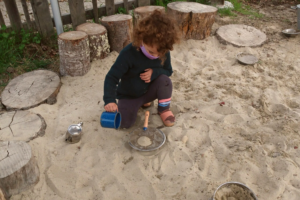A new comprehensive study of preschools across the United States finds significant drawbacks to pushing academics too early.
For children who attended academic focused Pre-K programs, researchers found that their initial academic gains diminished. In addition, they were actually behind their peers in elementary and middle school.
Another troubling finding was that students who experienced early academic pressure showed dramatic increases in behavioral issues later on.
The NPR article, “A Top Researcher Says It’s Time to Rethink Our Entire Approach to Preschool”, by Anya Kamenetz states:
“A statewide public pre-K program, taught by licensed teachers, housed in public schools, had a measurable and statistically significant negative effect on the children in this study.”
Dale C. Farran, PHD points out that families of means tend to choose play-based preschool programs with art, movement, music, and nature. Additionally, children are asked open-ended questions, and they are listened to.
However, this is not what Farran is seeing in classrooms of lower-income kids. “Teachers talk a lot, but they seldom listen to children.”
Above all, it is important for all children to experience play-based learning. And regardless of background, every student deserves to thrive in their early childhood education.
Additionally, Farran notes that the underlying skills of curiosity, interest in language, persistence, attentiveness, incidental learning, self-motivation, predictability, working memory, and self control are all foundational to academic success as the student progresses.
At Summerfield Waldorf School, we focus on what is developmentally appropriate for each age group, understanding that children especially need creative play, rhythm, sensory development, movement, and art, which build foundational skills that are critical to social-emotional health and academic success.
Asking children to take on tasks before they are developmentally ready for them can have lasting negative effects, and that is why we take a different approach to early childhood education.




